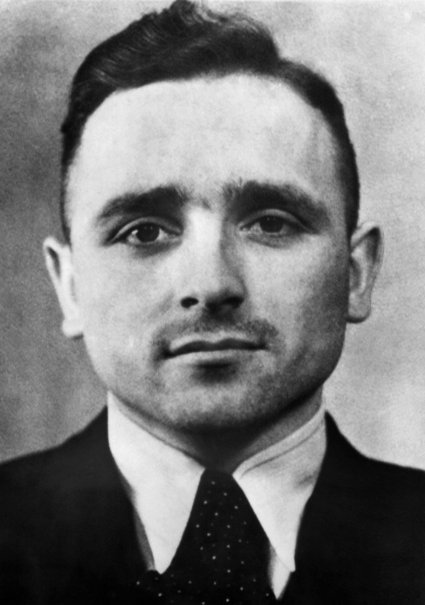On January 19, 1983, the world witnessed a significant event in the pursuit of justice and remembrance as Nazi war criminal Klaus Barbie, infamously known as the “Butcher of Lyon,” was arrested in Bolivia. This arrest marked a crucial milestone in the ongoing efforts to hold accountable those responsible for the atrocities committed during World War II.
Klaus Barbie, a former SS officer and Gestapo chief in Lyon, France, played a horrifying role in the Holocaust. Known for his brutality and sadistic nature, Barbie was responsible for the torture, deportation, and murder of countless innocent people. His arrest sent shockwaves through the international community, as it symbolized the determination to bring Nazi war criminals to justice, even decades after the end of the war.
The arrest of Klaus Barbie was the result of years of investigation and cooperation between various intelligence agencies and human rights organizations. Despite his involvement in the Holocaust, Barbie managed to evade capture for many years, finding refuge in South America. However, his crimes had not been forgotten, and the tireless efforts of individuals and organizations seeking justice eventually led to his apprehension.
Barbie’s arrest in Bolivia was made possible through the collaboration of the French intelligence agency, Mossad, and local authorities. The evidence against him was overwhelming, including testimonies from survivors and witnesses, as well as documents that detailed his crimes. The arrest not only brought a notorious war criminal to justice but also served as a reminder of the importance of preserving historical evidence and testimonies to ensure that such atrocities are never forgotten or repeated.
Following his arrest, Klaus Barbie was extradited to France to stand trial for his crimes. The trial, which took place in Lyon, was a landmark event in the pursuit of justice for Holocaust survivors and the families of the victims. The proceedings shed light on the extent of Barbie’s atrocities and allowed survivors to share their harrowing experiences, ensuring that their voices were heard and their stories acknowledged.
The trial of Klaus Barbie also highlighted the challenges faced in prosecuting war criminals decades after the crimes were committed. The passage of time had made it difficult to gather evidence and locate witnesses, but the determination to seek justice prevailed. The trial served as a precedent for future cases, demonstrating that no matter how much time has passed, the pursuit of justice remains unwavering.
Ultimately, Klaus Barbie was found guilty of crimes against humanity and sentenced to life imprisonment. His conviction served as a powerful message that those who commit acts of genocide and mass atrocities will be held accountable, regardless of the time that has passed since their crimes were committed.
The arrest of Klaus Barbie and his subsequent trial had a profound impact on the collective memory of the Holocaust. It served as a reminder of the horrors inflicted upon millions of innocent people and the importance of never forgetting the atrocities committed during World War II. The event also emphasized the significance of preserving historical records and testimonies to ensure that future generations understand the consequences of hatred, intolerance, and unchecked power.
Today, the arrest of Klaus Barbie stands as a testament to the commitment of individuals and organizations to seek justice and remember the victims of the Holocaust. It serves as a reminder that the pursuit of justice is an ongoing endeavor, and that the lessons learned from the past must continue to shape our actions and decisions in the present and future.
SEO Excerpt:
The arrest of Nazi war criminal Klaus Barbie (1983) marked a crucial milestone in the ongoing efforts to hold accountable those responsible for the atrocities committed during World War II. Learn about the significance of his arrest, the evidence against him, and the impact of his subsequent trial in Lyon, France.
External references:
– [The Trial of Klaus Barbie: The Butcher of Lyon](https://www.ushmm.org/information/exhibitions/online-features/special-focus/klaus-barbie/the-trial-of-klaus-barbie-the-butcher-of-lyon)
– [Klaus Barbie: The Butcher of Lyon](https://encyclopedia.ushmm.org/content/en/article/klaus-barbie-the-butcher-of-lyon)
– [Klaus Barbie: The Hunt for the Butcher of Lyon](https://www.bbc.co.uk/history/worldwars/genocide/barbie_01.shtml)

